|
Director Tran Anh Hung and his latest film are a match made in culinary and cinematic heaven. The opening scene, of "The Taste of Things," which doesn’t seem as long as it actually is - nearly 40 minutes long - is a luminously attractive parade of culinary delights. It is a period piece showing a couple/man and woman and two young females assisting with the gathering of vegetables, preparing various dishes, and carefully crafting and cooking each of several courses one at a time. Think of the opening of Ang Lee’s 1994 “Eat Drink Man Woman” but 25 minutes longer, more items and infinitely more tantalizing close up shots. Then it all gets served, lovingly consumed and painstakingly described.
All is set in an equally beautiful setting of a French countryside house and garden in 1889, with most of the movie taking place in a rustic, yet grand and charming kitchen brimming with copper pots and pans, a large wood-burning fireplace, a chunky wood table sitting on a stone floor and flanked by generous stoves, baskets with food and fresh cut flowers, and utensils on every surface. The tones throughout are dark and cozy. Director Ahn Hung has created a world of culinary delights. A feast for the eyes. Initially, the relationship between this gastronomic couple, Eugénie (Juliette Binoche) and Dodin (Benoît Magimel) is not known. Are they in a romantic relationship or just a professional one executing exemplary meals? Not too far into the story, it is realized that their’s is a special relationship that balances both- a passion for the culinary arts as well as a personal affection resulting from two decades of working together. It is their shared love of food and cooking that led to a deep romance usually only subtly portrayed. Eugenie is a humble, yet esteemed cook, and Dodin, a revered gourmand. Although Binoche and Magimel are the stars, and wonderfully so, the themes of gastronomy and love is at the center of this romantic drama. In true Ann Hung minimal style (“Scent of Green Papaya,” “Vertical Ray of the Sun”), aesthetics and ambiance are more prominent than words and dialogue. “The Taste of Things,” based on the French novel “The Passionate Epicure” (1920 by Marcel Rouff), is a unique love story about love itself and the love of food. I recently had a chance to interview the director about his latest film. Here is our discussion: Q: Your films display a strong visual sensibility where aesthetics and overall tone are seemingly more important than traditional scripts heavy with dialogue. Would you agree with that observation and if so, was that something you learned or did it come naturally? A: It did come naturally to me, probably because I’m attracted to visual arts. In movies I don’t try to get something that looks real, something in everyday life. I prefer to give an expression of it. By doing so, the beauty came naturally. I always want audiences to come out of the theater with a feeling of beauty. Q: You’ve always been okay with using dialogue sparingly? A: In talking about words, I think it’s good to balance dialogue with a lot of silence. That way when you hear words, it’s more precious. This combined with the visual aspect, make it more vivid. Q: How did food and cooking come to be one of the main aspects of the film, along with a longterm relationship? Was part of it inspired by your wife, actor, Tran Nu Yen Khe’s (“Vertical Ray of the Sun”) love of food and overall design? A: In one way or another, my wife and I have worked together with my film projects for almost 30 years, so we know each other and how to collaborate very well. She has done the costumes for some films, the production design for others as well as the art direction for everything, including Taste of Things. The look and beauty of it is in large part thanks to her. When I wanted to make a movie about food, I found a particular book, but the story wasn’t good. Given that, I decided to tell a different story. This story is inspired by my relationship with my wife. Because of my age I wanted to make a movie about marital, that kind of love that lasts a long time. The challenge was how to make a movie about love, with a sense of harmony that would not be boring, Q: How exactly is gastronomy central to the story and the featured relationship? A: Food in general is one source of centrality in our lives, along with love, so it was important to have a film that combined that to find a balance. I knew the audience needed to actually see people making the craft of gastronomy with real vegetables and real meat, etc. Anh Hung relayed that because of the complexity of the cooking scenes he had hoped to have adequate training time for the actors with a chef. He specifically planned for one week of training, but due to both Binoche’s and Magimel’s work schedules, they were only available for half a day of training. That could have been daunting, but it actually ended up being enough because the perform at such high levels no matter what the roles or tasks. Q: With the art and craft of gastronomy being so central to the film, with the actors actually prepping, creating and plating, was it particularly challenging to cast and direct actors who had no prior culinary experience, per se, and then end up with little time to train? A: Well, firstly, although they have no professional experience with food, like all of us they do still cook in their everyday lives. This is especially true for Benoit because he has a particular passion for cooking. The other thing is that they are great professionals with a lot of experience in varying roles. Case in point, Benoît had played a surgeon once and realized he could draw upon his skills he learned from that role to this one. Anh Hung explained that the incredibly gorgeous and historically accurate food created was born of a collaboration with a food historian during the script writing process. Once they settled on items and tested them out, everything was run by the production’s food advisor who made minor adjustments to the menu. Afterwards and throughout the entirety of the shoot, Binoche executed the menu to perfection. Tran confirmed that there were no cut aways to someone else slicing and dicing or cooking. Q: You are no stranger to working with talented actors, food and lush aesthetics, but I’m especially impressed how you write and direct projects of different countries and languages, including Vietnamese, Japanese and French. Given your background, does Vietnamese come most naturally and easily as far as language and culture? Is French more of a challenge? A: Actually, my French is better than my Vietnamese. Switching languages for a script and directing comes very natural to me, and when I come to France to direct, I have no problem getting a sense of the culture and conveying it. I like French culture. Also France, unlike some other European languages and cultures has a subtlety to it that coincides with my Vietnamese nature. The downplayed expressions of love between Eugénie and Dodin is something I can relate to and is very French. There is great love there, but they often do keep their distance to focus on the tasks at hand. And sometimes I mix cultures in my mind and writing. When the two characters in this film discuss the seasons as it connects to their personal preferences and their relationship, that is actually very Japanese, but put in this context, it sounds very French and it works. Q: Speaking of very French, how did you come to the casting? Not that Binoche wouldn’t be the top of any director’s wish list. A: Although Juliette and I have never worked together until now, we have known one another for a long time, over 20 years. We’ve always wanted to collaborate and when I started writing this script, I knew this would be a great opportunity. She was there from the beginning and she stayed event when we hit some difficulties. Everything with her was quite amazing because when you frame her, everything becomes strong. Likewise, Benoit is amazing too and I’m grateful to have both of them for this project. When you see the movie, it’s obvious that there was a special connection between not only Binoche and Magimel, who in the late 90s were a couple in real life and share a daughter, but also between the lead actors and their writer/director. If ever there was a passion project, this is it. “Taste of Things” was born out of love, made from love and dedicated to the love between Tran and his wife. While some couples are scrambling for last minute tokens of their affection for their loved ones this Valentine’s Day, for director Ann Hung can lovingly point his wife to this deliciously gorgeous film now and forever. For the rest of us, we can watch “The Taste of Things” together and experience the food and feel the love. Born in Vietnam and living in France for many years since 1975, Tran Anh Hung studied filmmaking in Paris at l’École Nationale Louis Lumière. His directorial debut, “The Scent of Green Papaya” (1992) won him a reputation internationally by winning Camera d’Or and the Prix de la Jeunesse at the 46th Cannes Film Festival. The film was also nominated for the Academy Award for Best Foreign Language Film. Director/Writer: Tran Anh Hung Stars: Juliette Binoche, Benoit Magimel, Emmanuel Salinger Country: France Language: French Run Time: 2 hours 15 min MPAA Rating: PG-13 Production Company: IFC Films Trailer: https://www.youtube.com/watch?v=cKKCGtoIOVY
0 Comments
“The Teachers’ Lounge” is Germany’s submission for Best International Feature Film to the 2024 Academy Awards, and just a few minutes into it, it’s easy to understand why. The film uses a public school as a microcosm for society, with grade school teacher Carla Novak (Leonie Benesche) at the center. Although she is new-ish to teaching, she is confident and idealistic and seemingly well-liked by her middle grade students as well as her colleagues. That all changes when students in her classroom are suspected of theft by other teachers, and she suspects a colleague of stealing money from her coat pocket.
During the initial scene of her students being unofficially investigated for a theft, Carla is clearly uncomfortable with the accusations, probing and profiling taking place. She questions the ethical and legal nature of the investigation. She sympathizes with the students’ feelings of being violated and a couple of them maybe even unfairly profiled. Despite her unease, she is instructed by the principal and teacher involved to accept their decision to investigate and their methods. Not long afterwards, she realizes she has been the victim of a theft in the teachers’ lounge. In an attempt to catch them in action, Carla purposefully puts money in her jacket pocket, leaves it at her seat, then sets up her computer camera. The thief takes the bait, but only his or hers torso is captured on camera wearing a distinctive and colorful blouse. With evidence in hand, she approaches who she believes is the culprit, one of the support staff in the school office. The secretary vehemently denies the accusation. Soon after, a series of heated debates and unfortunate events are unleashed, with the secretary’s son, a student at the school who is often the subject of bullying, is swept up in the drama. He lashes out at the teacher in defense of himself and his mother. Others question if the mother and son are not being singled out because of their ethnicity and economic status. This is the very thing that Carla questioned when certain students were targeted in her classroom. Now she herself is accused of what she had earlier suspected. Carla, once appreciated and admired; cool and calm, is getting it from all sides. There is no place in the school- her classroom, the teachers’ lounge, common areas- where she is not either the victim of accusations or brought into decisive matters between others. Not surprisingly, she begins to second guess herself, the choices she made and the allegations she made. Because the movie is done entirely from Carla’s point of view and she is well-meaning and likable, the audience is sympathetic to her and what becomes her plight of digging a deeper hole as she tries to navigate what’s right and wrong. She is the teacher you would want for your children or would have wanted for yourself. You feel the chaos swirling around and want to defend and protect her. Benesch is magnificent as the protagonist. She morphs into the role, believable and captivating. She makes us believe that Carla is us in our everyday battles no matter how small or large; it’s individuals grappling with when to engage in political or community issues, and when to retreat. Through it all, filmmaker İlker Çatak (“White Ribbon”) impressively navigates themes of power, racism, social justice and student’s rights. There is something both very reflective of German society while also intensely universal. Director: İlker Çatak Writers: İlker Çatak and Johannes Duncker Stars: Leonie Benesche, Eva Lobau, Leonard Stettnisch Language: German MPAA Rating: PG-13 Run Time: 1 hour 38 minutes |
AuthorPaula Farmer. Archives
June 2024
Film |
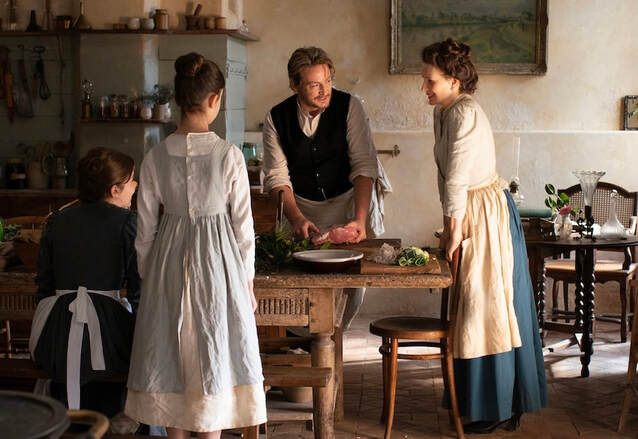
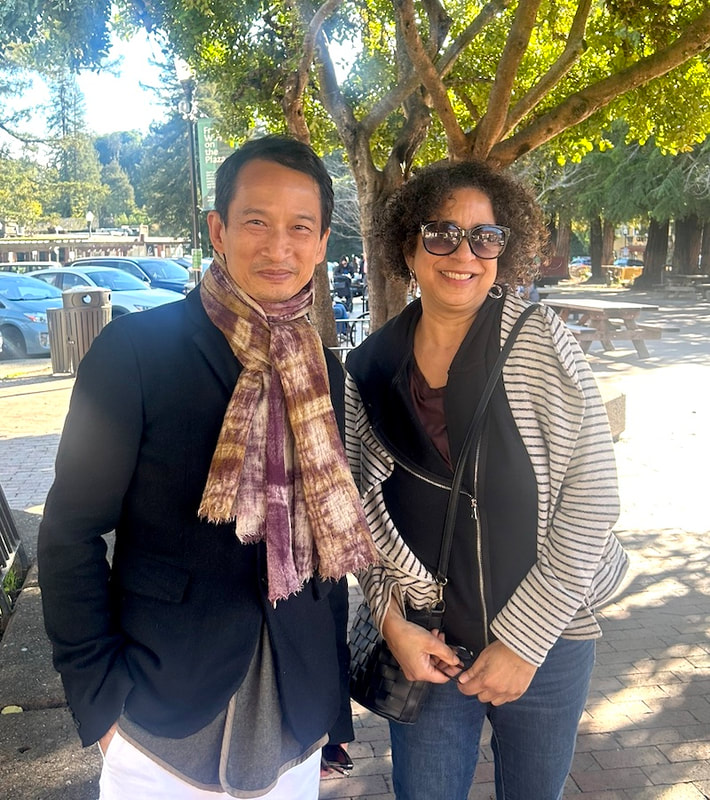
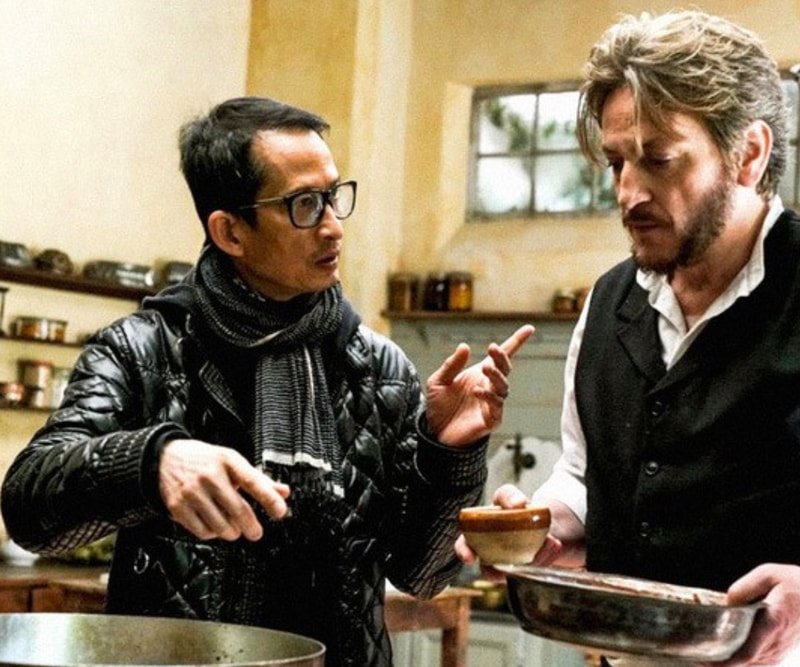
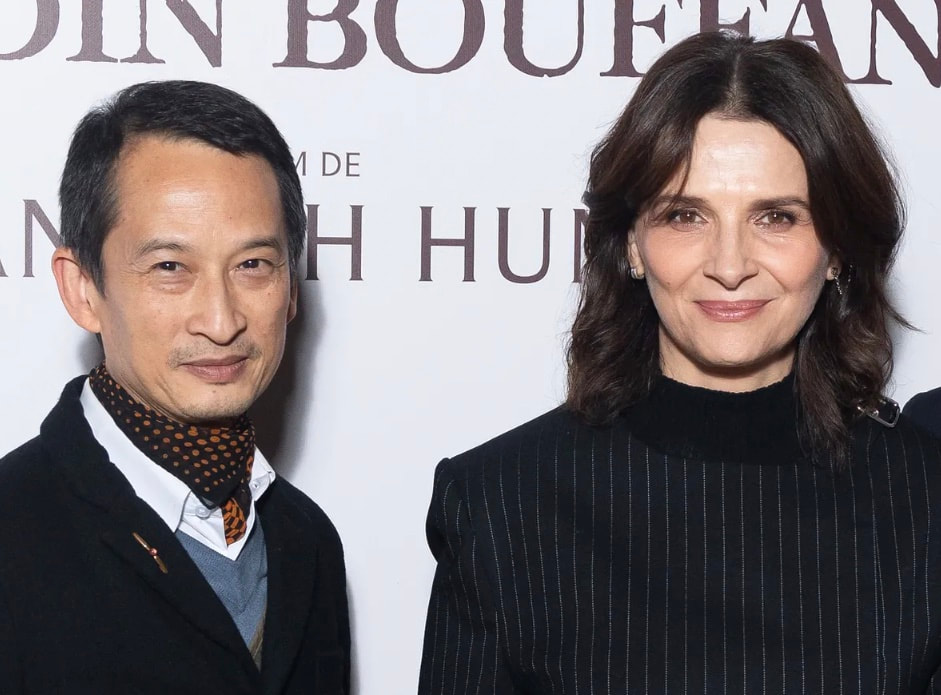
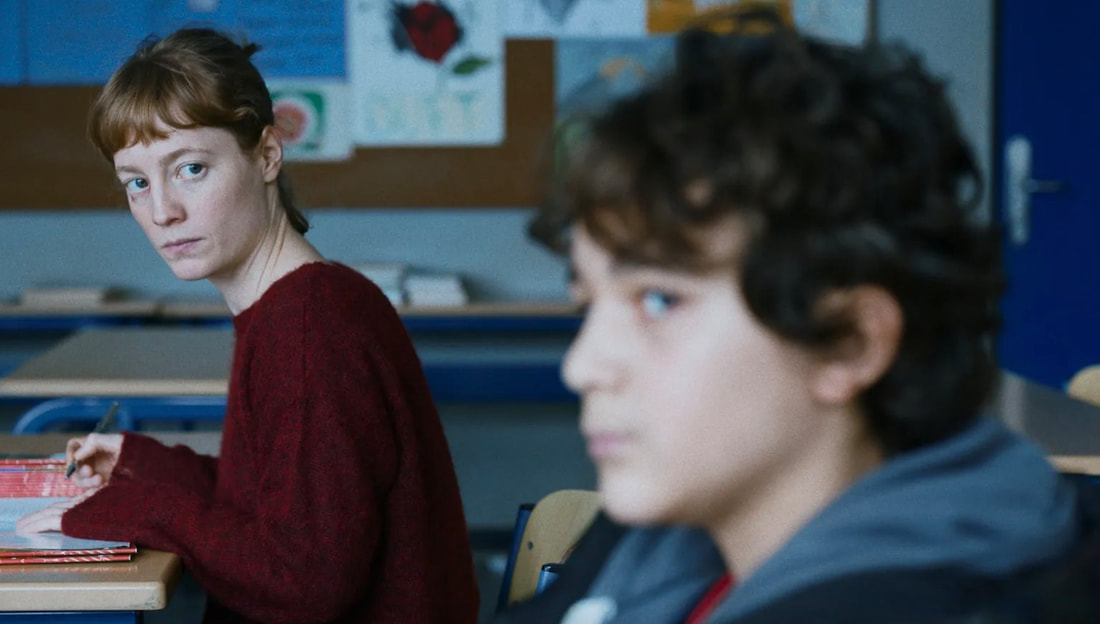
 RSS Feed
RSS Feed